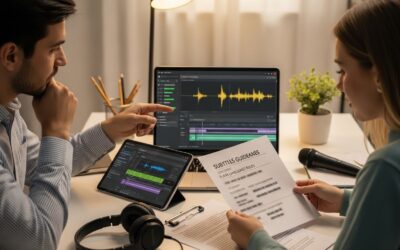The combination of generative artificial intelligence (AI) and human knowledge is rapidly changing the landscape of translation in the healthcare sector. This fusion promises to transform the way translation professionals manage medical documents, enhancing both speed and accuracy. In this article, we will explore how generative AI is influencing medical translation and how human knowledge remains essential in ensuring high-quality results.
Generative AI in Medical Translation
Generative AI is an advanced technology that uses algorithms to automatically create content. In the field of translation, this technology can generate quick and accurate translations by analyzing large amounts of linguistic data. With generative AI, translators can increase their efficiency and reduce the time needed to deliver projects.
However, despite its advancements, generative AI is not infallible. In medical translation, the specific nuances of context and specialized terminology are crucial for ensuring accuracy. This is where human knowledge comes into play. The interaction between AI and human translators becomes essential in producing accurate and reliable translations.
The Role of Human Knowledge in Medical Translation
While generative AI is powerful, human intervention remains crucial in medical translation. Expert translators possess the specialized knowledge necessary to correctly interpret and contextualize medical information. Furthermore, they can apply critical judgment in situations where AI might fail, such as handling complex terminology or adapting texts to the cultural context of the patient.
Human knowledge is also key to ensuring that translations are not only linguistically accurate but also culturally appropriate. Medical translators must consider differences in perceptions of health and well-being across cultures, which is vital for providing quality patient care.
The Future of Medical Translation: A Collaboration Between AI and Human Translators
The future of medical translation is not a competition between AI and human translators but rather a collaboration. Generative AI can handle repetitive tasks and generate quick drafts, but human translators are responsible for reviewing, correcting, and contextualizing translations. This synergy optimizes the translation process, improving both efficiency and accuracy.
As technology continues to advance, AI is expected to play an increasingly important role in the field of medical translation. However, human knowledge will continue to be necessary to ensure that translations are not only accurate but also ethically responsible and culturally sensitive.
Conclusion
Generative AI is marking the beginning of a new era in medical translation, improving speed and efficiency in delivering documents. However, human knowledge remains essential in ensuring the accuracy and cultural relevance of translations. The combination of these two forces, AI and human translators, promises to transform the healthcare sector, providing more accessible and precise care for patients worldwide.
By integrating generative AI into medical translation processes, translation companies can offer faster and higher-quality services. However, human oversight remains crucial to ensure that the translated content meets the highest standards of accuracy and cultural appropriateness. The future of medical translation will depend on this collaboration between artificial intelligence and human knowledge.




